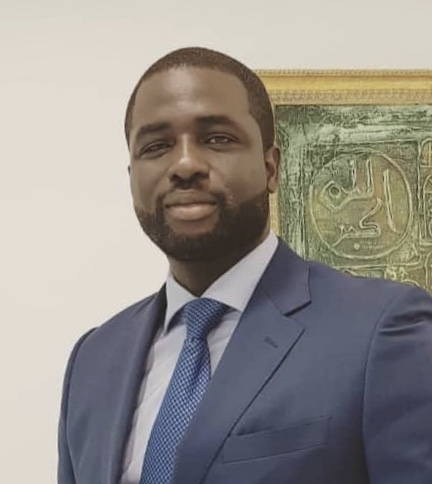BY TEGA ADEDA—-History is littered with fantastic tales that portray the way societies moved through wars, plagues, diseases, and famine just as economies oscillated between prosperity and poverty in what we refer to today as the business cycle. These events usually bring change and with it, the process of wealth accumulation and distribution. As wealth changes hands, the economic and political order takes on a new form. The largely unexpected global pandemic brought on by the SARS-CoV-2 virus (Covid-19 is the Coronavirus disease) is not a unique historical event. An author once wrote that “the wheel of time turns… what was will be, what is already was.” It is highly likely that humans will act and react in a similar fashion to the past. As the great book says, “There is nothing new under the sun”.
As a young boy, I was always fascinated with airplanes and the hundreds of controls which pilots had to operate and monitor. I would often beseech the cabin crew, letting them know how vital it was that I said hello to the pilot. To their credit, they often granted the requests of a young boy. It isn’t far-fetched to say that this inquisitiveness may have continued to be indulged, save for the events of that fateful day in September 2001, when an Islamic extremist group hijacked four commercial airplanes and carried out suicide attacks against targets in the United States. That single event changed the face of commercial travel in many ways, one of them being cockpit doors are usually left locked throughout the flight. Covid-19 will bring many temporary and permanent changes to our world as we know it, and the key to navigating it through is by knowing what routines and living norms will revert to type a few years, and what alterations to the way we live will become permanent — a new way to live.
It had been my third week working from home (WFH), (like many others) when I considered that my living room sofa had been largely uncomfortable, and wondered why I had not thought of getting a home office workstation yet. It became clear to me that my mind was subconsciously hoping for the lockdown to end and for life to return to normal. This was an easier state of mind than to consider the uncomfortable notion that social distancing may last for another three weeks, perhaps three months, or that it is here to stay, in some form or the other. Having accepted the sad truth, I promptly purchased my WFH furniture; it has now been in use for four weeks.
Boris Johnson, the British Prime minister unfortunately tested positive for Covid-19 and told the world he was going into self-isolation but that he was still in charge of the country, thanks to modern day video conferencing technology. The U.S. congress passed the historic $2 trillion stimulus with congress members largely at home. Chief Executives of multinationals continue to run billion-dollar organizations from home whilst company Annual General Meetings (AGM) are now taking place online in many parts of the world. We live in a world of endless possibilities.
The Healthcare community is unanimous in its assessment that a possible vaccine for the billions of people in the world who have not contracted the Sars-Cov2 virus is between 12 to 18 months away. Many countries like Singapore and Hong Kong which were quick to control the Covid-19 outbreak went ahead to lift some restrictions, but then had to tighten them again after new cases spiked, and the fear and reality of a new wave of infection became apparent. The next few years will likely be one in which world economies fall into a start – pause – start cycle with WFH and social distancing a part of everyday life. More than ever, we will all have to activate one of the most important characteristics of all living things – adaptability.
With most people in lockdown mode, for many against their will, the use of video conferencing applications is on the increase, and with it, the fortunes of their owners. Zoom video conferencing app, recently reported that “daily meeting participants” on its platform rose from 10million from 300million in less than three months. The online behemoth, Amazon, recently added 100,000 job positions after online orders surged and have indicated that a further 75,000 positions will be added to that in the coming weeks. The fundamental question is the one posed to individuals, companies, and governments – how will they behave during and after the quarantine wrought by the Covid-19 pandemic?
No one really knows the answers, but a good starting point in our decision making processes should be to answer the difficult questions we will face with a lip full of facts and reality, and not the hope of a quick return to the way things were. Travel and vacations may feel routine again, say in five years’ time, but the disposition towards travel and flights over the next six months or so may be one of discomfort and uncertainty, as the spread of the virus remains fresh in our minds and the risk of catching it potentially significant. One keyword to watch out for over the next year and possibly two is “essential”.
Individuals and organizations will start making decisions based on essential and non-essential goods as well as services. With video conferencing thriving, it may be become more difficult to justify business travel. Life will eventually go back to normal, but how we conduct business and interact with each other may never be the same again, and a new normal may follow. As various forms of changes are forced upon us, remember that it is good to be hopeful in life, but in the business world, hope is not a strategy. In the animal kingdom, only the fittest will survive. This also applies to organizations which will delay in adapting to the new way of living.
It is Friday night and my glass is full. I am watching DJ Exclusive on my mobile device, showing-off his turntable skills on Instagram live. In the background, my cable TV is on; an old NBA final match is being shown. Earlier in the day, I had read online about how the organizers of Wimbledon tennis tournament had paid out as much as £25.5 million for Pandemic Insurance, over the last 17 years. They will receive a payout of almost £114 million from their Insurer for this year’s cancelled tournament. Alas, the global pandemic is affecting everything around us.
Tega Adeda, CFA is Emerging Market Trader.













